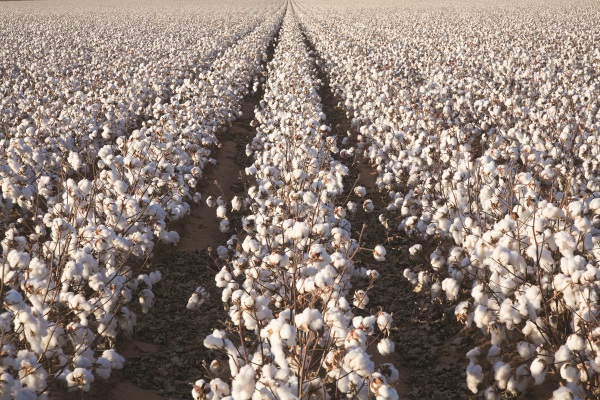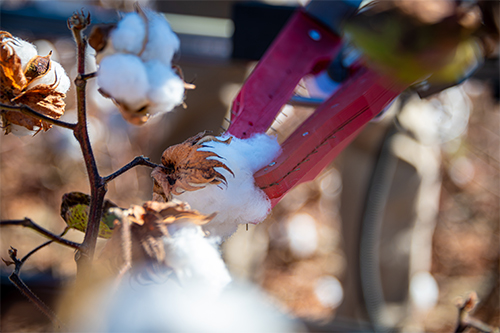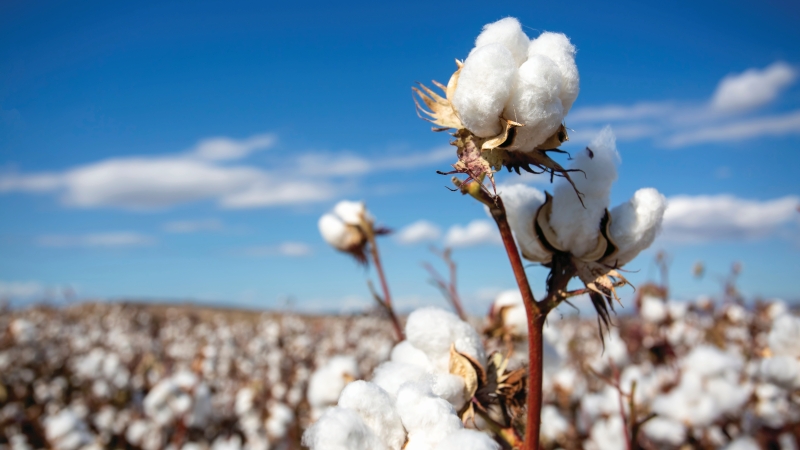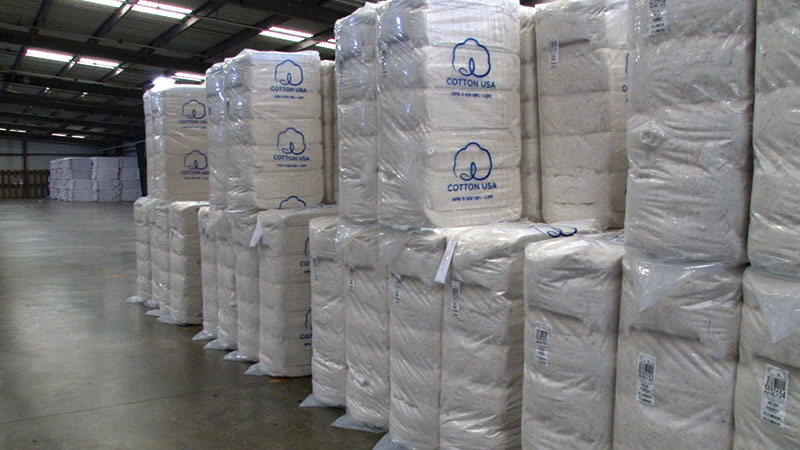P.I.E. Tours Resume as Mid-South, Southeast Cotton Producers Visit Texas
The National Cotton Council’s Producer Information Exchange (P.I.E.) program resumes Aug. 21-26 as 18 Mid-South and Southeast cotton producers visit Lubbock and the Lower Rio Grande Valley of Texas to see cotton and other agriculture related operations.
Following this year’s scheduled tours, more than 1,200 U.S. cotton producers will have been exposed to innovative production practices in Cotton Belt regions different than their own. Launched in 1989, the P.I.E. – now sponsored by BASF Agricultural Solutions through a grant to The Cotton Foundation – is resuming after a two-year hiatus due to COVID-19.
NCC Chairman Ted Schneider, a Louisiana producer who was a 1994 P.I.E. participant, said, “The U.S. cotton industry is very appreciative to BASF for underwriting the P.I.E. program, because it provides its producer participants an exceptional opportunity to improve their on-farm efficiency by seeing what works and doesn’t work.”
“BASF is proud to support this unique educational opportunity for America’s cotton producers,” noted Bryan Perry, U.S. Head of Seeds and Traits for BASF Agricultural Solutions. “New technology continues to accelerate at a rapid pace and adapting these tools and techniques to specific farming operations is a challenge. These P.I.E. participants are receiving an invaluable experience by not only seeing innovative farming practices firsthand but getting to ask questions about them face-to-face with their peers.”
The P.I.E. program’s primary goal is to help U.S. cotton producers maximize production efficiency and improve yields and fiber quality by gaining new perspectives in fundamental production practices and by observing diverse farming practices and the creative ways in which other producers have adopted new and existing technology. The program also fosters the sharing of information among the participants within their own Cotton Belt region as they travel together during the week.
The NCC’s Member Services staff, in conjunction with local producer interest organizations, coordinates the P.I.E. program’s tours and participant selection.
The 2022 Southwest tour participants are:
- Alabama – Andy Armstrong, Dothan
- Arkansas – Ryan Johnson, Wilmot, and Connor Miller, Leachville
- Florida – Phillip Melvin, Altha
- Georgia – Patti Niewoehner, Dixie
- Mississippi – Bo Leatherman, Robinsonville
- North Carolina – Kellum Cahoon, Engelhard; Travis Grimes, Battleboro; Denton Spruill and Blake Sumner, both of Como; and Ryan Tolley, Scranton
- South Carolina – Weston Green, Lynchburg
- Tennessee – Scott Farmer, Stanton; Chad Hardy, Gates; Will Robinson, III, Lavinia; and William Walker, II, Somerville
- Virginia – Bland Pope, Courtland; and Travis Snyder, Capron.
The tour begins on August 22 in Lubbock where the group will get an overview of the Texas High Plains from Plains Cotton Growers Executive Vice President Kody Bessent before visiting BASF’s Seed Innovations Center. They will also visit Lloyd Arthur Farms in Ralls and Sam Stanley Farms in Levelland.
The balance of the tour will be spent in the Lower Rio Grande Valley, beginning with a visit to the Port of Brownville on Aug. 23. On Aug. 24, the group will tour the Ross Gin in Mercedes, look at sugar cane processing at Rio Grande Valley Sugar Growers in Santa Rosa and a border cotton trans-shipment warehouse in Weslaco, before getting individual tours on Rio Farms in Monte Alto.
The tour concludes on Aug. 25 with visits to the Valley Coop Oil Mill in Harlingen, the Port of Harlingen, and the Hidalgo Water District #5, followed by tours of Chris Bauer Farms and the Frank Russell Farm near San Benito. The group also will be updated on boll weevil eradication status in the Rio Grande Valley from the Texas Boll Weevil Eradication Foundation.
A second P.I.E. tour for 2022 is scheduled for Aug. 28-Sept. 2 when Southwest and West region producers will see cotton and other agricultural operations in North Carolina.
Based on information provided by the National Cotton Council








